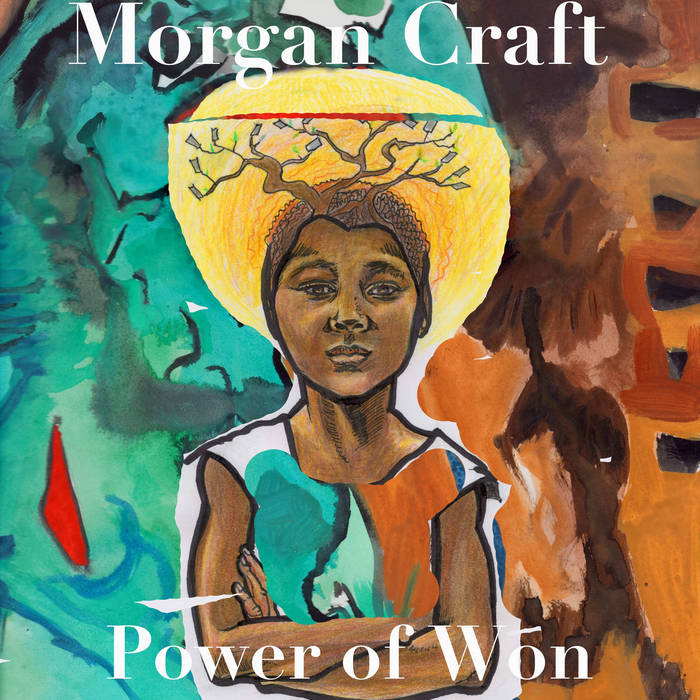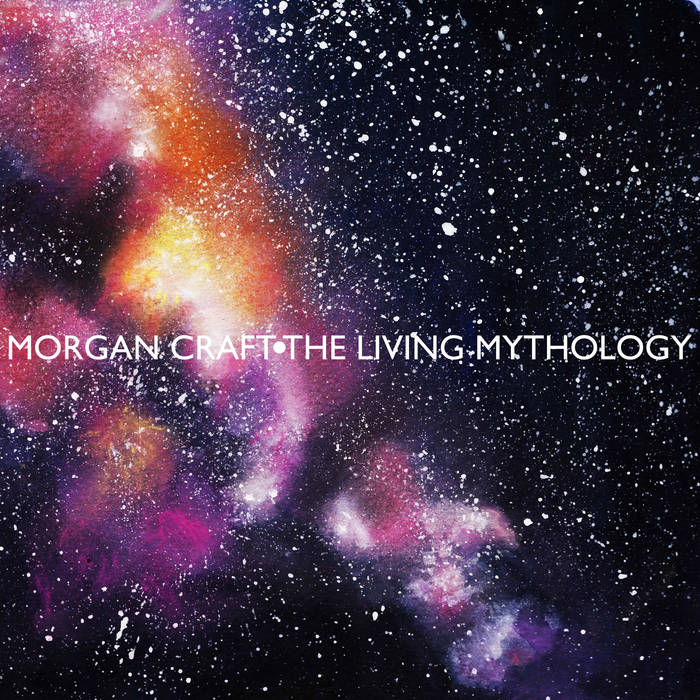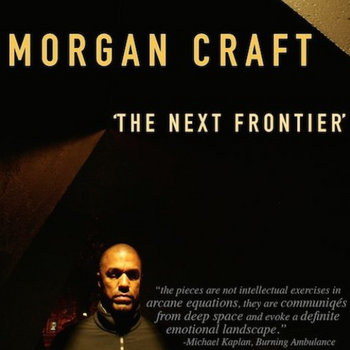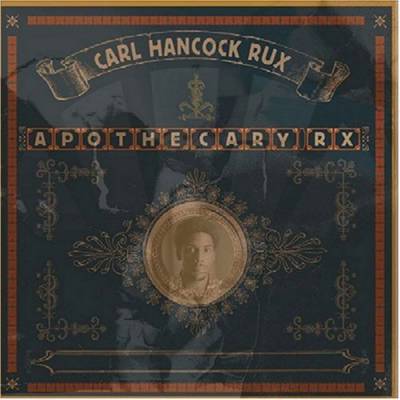Morgan Craft plays Stunt Guitar. Found objects, real time sampling, melody, harmony, rhythm & rhyme, amp hiss, mistakes, devices, shortwave, and a willingness to try something new. An improviser not tied to a system, just true freedom.

Born and raised in New Brighton, Minnesota on a steady diet of everything, he moved to New York in 1994. February 1999 saw the live debut of Earthdriver, of which Morgan was a principle member. His time with the band only lasted six months, but it was enough to garner a handful of gigs, an album, and a bit of attention.

Morgan joined Carl Hancock Rux’s Rux Revue Band. The band travelled a bit, hitting the Transmusicales Festival in Rennes, France, Atlanta for the Black Arts Festival, Los Angeles; as well as gigs in New York at the Bottom Line, Makor, Webster Hall for the 2001 Obie Awards, Joe’s Pub, New Jersey Performing Arts Center and in Prospect Park for their Celebrate Brooklyn event.
In December of 1999 Morgan was tapped by Greg Tate for Burnt Sugar.

Rough Americana
In 2001 Morgan founded Circle Of Light Recordings as a means of releasing music when he wanted, how he wanted. The fist release was a solo electric guitar record called Adagio. Completely improvised from top to bottom, it set in motion his exploration of the concept known as Stunt Gutar. 2003 saw the second release of the label: Rough Americana.
Rough Americana is a band of two: DJ Mutamassik and Morgan Craft. The self titled album was recorded live at Peter Karl's Studio in Red Hook, Brooklyn. Mutamassik wielded the vinyl, compact discs, cassettes, and effects while Morgan brought the Stunt Guitar.
The album takes pretty much everything under its wing, from the abstract oasis of the title track to the blistering, quick fire, real time sampling and raging animal on the loose of Air Raids, and that's just the first two tracks. Everything is sacred and nothing is profane here. Egyptian folk beats nestle nicely up against radio transmissions and television remote controls pushed through guitar pickups. Jello Biafra makes an appearance as well as Sun Ra, A.R. Luciani, Ziad Rahbani, Charles de Gaulle, some wild ass punk band from the eighties, Cecil Taylor, etc. Everything is live here, no exceptions. But don't get the idea that it's all about the sampling from these two; most of the tracks are straight flesh and blood and wood and wire and rotary belt, twisted to meet the needs of two future thinking artists.
He has played with: Butch Morris, Talib Kweli, Pete Cosey, Ikue Mori, Meshell Ndegeocello, Anton Fig, Beans, Muzz Skillings, Greg Osby, Rhodri Davies, Johnny Kemp, Marc Ribot, Christian Marclay, Simon H. Fell, Nona Hendryx, Carl Hancock Rux, Daniel Carter & Vernon Reid.
After a 10 year period of intensive Tuscan forest recording sessions, he is currently based in Amsterdam.
What do you remember about your first approach to music?
What i remember most vividly was coming home with my guitar and amp the first day that i got them, and setting up in the living room. I plugged in the guitar and strummed the strings without fretting anything with my left hand and my heart sank. Somewhere in my mind i had thought that
having an electric guitar and amp was enough to sound like Metallica's 'Master of Puppets'. My heart sank with the realization that i had a very long road ahead of me.
Eric John Eigner - Drums, Clarinet, Morgan Craft - Stunt Guitar, Daniel Carter - Alto, Tenor, Trumpet, Flute
How's your musical routine practice?
My practice routine is pretty much the same as it's been for over twenty years. I realized a long time ago that knowing all the possible scales and modes was not for me, so i chose the ones that i was sure i would use. Those would be the major scale, minor scale, pentatonic scale, and the chromatic scale.
So my practice is really about staying in shape with my fingers and coordination. I'll do all kinds of finger variations and patterns up and down the neck. I don't have any particular amount of time set aside for this, i just pick up my guitar at various times during the day. And of course i've never left behind the true way of practicing for me: playing along with stuff. I still play to everything that i'm listening to.
So my practice is really about staying in shape with my fingers and coordination. I'll do all kinds of finger variations and patterns up and down the neck. I don't have any particular amount of time set aside for this, i just pick up my guitar at various times during the day. And of course i've never left behind the true way of practicing for me: playing along with stuff. I still play to everything that i'm listening to.
Marc Ribot Mystery Trio w. DJ Mutamassik, Morgan Kraft live at Umbria Jazz Festival 2004 film Paolo Massoli
What's the relevance of technique in music, in your opinion?
I believe that technique is essential for building the necessary bond between musician and instrument. Music is never about what notes you play, it's about how you play them, it's about your emotional commitment to them. The way that you build that bond is by spending endless hours actually playing your instrument. And by putting in the hours, days, months, and years, eventually you reach a certain level of technical fluency. Great music is made by confident musicians. The only way to build confidence is to master your instrument. This takes time and discipline. Once a high level of technique is achieved you then realize you never need to use it. This is one of the great mysteries of musical mastery; having to walk the long road of technique and mastery to finally arrive at the place where you no longer need to show it. And yet because you have it, one note carries tremendous emotional weight.
Why do you need music? Can we live without music?
We are presently standing at the edge of a new era. This new era will reveal the wider dimension of what we have, up till now, called music.
For music is much bigger than the definitions currently being applied to it. In fact, we cannot live without music because we are music. All things, great and small, are music. The world is a vibratory phenomenon.
All matter is but different rates of vibration. Sound is the animating principle of the universe. And man is actually a symphonic improvisation evolving through time, never fixed, never repeating. We are now at the threshold of a new understanding and appreciation for the truth of what music is and what it is capable of.
What are the challenges and benefits of today's digital music scene?
One of the benefits is the fact that you can listen to virtually anything at any time. As far as being a fan and student of music, this present era is astounding. I come from the time where i would have to save my allowance to buy one album every week or two. I'm glad that i had that experience because it made me learn how to give an album time to sink in.
I still believe that is a good philosophy to have and i still practice it. I've heard that the younger generation is swamped with too many options and tends to jump around from track to track, not giving much time to any one artist. The availability of too much sound could be detrimental if
not used properly. I love it, myself. Of course i know people are complaining about the musician not making money anymore from recorded music and to some extent this is true. But it's the natural development within the cycle of the business.
I worked at Tower Record at the apex of the industry and i know what they were getting away with. I'm talking about the artists, execs, labels. CD's were priced at $18.99! So what we're seeing now is a balancing out. You can still make money from recorded music, but if you want to be a millionaire from it you might have a hard time. I'm fine with pressing up vinyl for those who want a piece of Art. 1,000 copies going for $15.00 is nothing to sneeze at, and it keeps the artists in check. Either you are a musician, in it for the long haul, or you want to hit it big and get out. I'm in it for the long haul.
I worked at Tower Record at the apex of the industry and i know what they were getting away with. I'm talking about the artists, execs, labels. CD's were priced at $18.99! So what we're seeing now is a balancing out. You can still make money from recorded music, but if you want to be a millionaire from it you might have a hard time. I'm fine with pressing up vinyl for those who want a piece of Art. 1,000 copies going for $15.00 is nothing to sneeze at, and it keeps the artists in check. Either you are a musician, in it for the long haul, or you want to hit it big and get out. I'm in it for the long haul.

Photo dvdell
Depict the sound you're still looking for, or the sound you'd like to hear.
The sounds i most wish to play perhaps cannot be heard by the human ear at the present time, yet have a physical effect on the environment. I am seeking a music that not only causes things to happen, or creates emotions in people, but that also has the ability to create what we call matter.
The sounds that will make this possible perhaps will not be audible at first, until we have evolved the proper consciousness to accept their reality. Once we believe they are possible we will then begin to hear them. We will be inside of a new music altogether.
Which is the main pleasure of the strings? What are their main limitation?
What i love most about the electric guitar is its sensitivity. The smallest gesture you make with your hands or body becomes audible. It seems to me the most expressive instrument there is, but i might be biased. As far as limitations, there are none. Period. Every instrument is infinite, so for me, another pleasure is the endless exploration the guitar provides.
Can you describe a sound experience that you believe contributed to your becoming a musician?
I remember sitting on the floor of my grandparent's house with headphones on, listening to records. Some of my earliest passions were Elton John, Hall and Oates, and Fleetwood Mac. Those albums are still with me today and i feel they were absolutely essential in steering me toward music. But truly, who can say where our destinies come from. At the age of three or four, it's nearly impossible to conceive that i had anything to do with why i loved music. The other important moment came when I was 11. I was listening to the Scorpions song, 'Still Loving You', and when the hook finally comes after the five minute buildup, i got goosebumps. I remember it like it was yesterday. I looked down at my arms and couldn't quite understand what it was about. It happened at a specific point in the song.
So i rewound the tape and listened again. The same thing happened in the same exact place. That changed my life. And i know that i'm still doing something right because i still get goosebumps when listening to certain things. That's my sign that i've stayed true to my passion.
What do you recall about your playing learning process?
I was not a natural. I was not gifted at all. I started playing at age 12, and that first year not much happened. I didn't know what to do.
Then i met a guy who showed me how to proceed. That changed everything.
He was absolutely a natural and i used to marvel at the things he could do so effortlessly. So he became my first teacher. We were the same age, but he was so far ahead of me at the time. I grew up in the golden age of the electric guitar. The eighties were the pinnacle of guitar excess. I came up right at the moment of technical virtuosity. The facility of the best guys was incredible. Yngwie, George Lynch, Chris Impelliteri, Steve Vai, Joe Satriani, John Sykes, Eric Johnson, i could make an endless list of players i was absorbing.
Starting out and being able to take that level of technique for granted was very special, and very unique for the instrument. So i was completely ready for the magazine explosion that followed. Guitar for the Practicing Musician was my monthly bible. I never learned how to read traditional music, but tablature allowed me to make giant leaps in my playing. I would keep my copies of the magazines pristine. For all intents and purposes, that was how i learned. Every issue had a song or three that i loved, so i'd just sit there and learn as much as i could. What i loved about the transcriptions was the detail. I don't know how they were able to cram so much information in there, but they were like artworks. Every little slide or bend or feedback was there on the page.
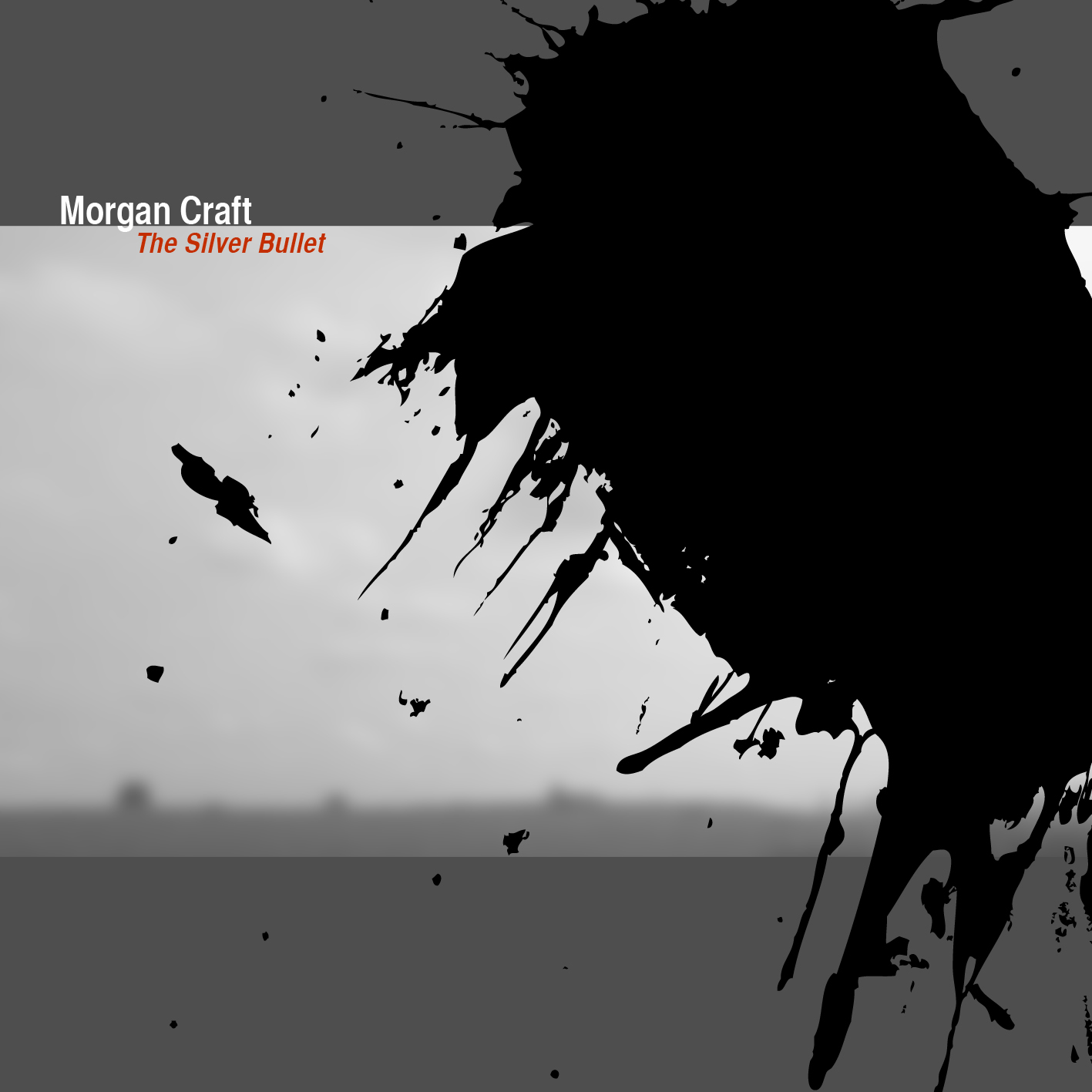
Starting out and being able to take that level of technique for granted was very special, and very unique for the instrument. So i was completely ready for the magazine explosion that followed. Guitar for the Practicing Musician was my monthly bible. I never learned how to read traditional music, but tablature allowed me to make giant leaps in my playing. I would keep my copies of the magazines pristine. For all intents and purposes, that was how i learned. Every issue had a song or three that i loved, so i'd just sit there and learn as much as i could. What i loved about the transcriptions was the detail. I don't know how they were able to cram so much information in there, but they were like artworks. Every little slide or bend or feedback was there on the page.

What is some valuable advice that someone has given to you in the past?
Who you will be in the future depends upon the books you read and the people you meet.
What instruments and tools do you use?
My set up has been the same for the last decade. Fender Strat, Fender Vibrolux, Boss distortion (the yellow one), wha wha, Boss DD-5 delay, Volume pedal, Digitech Whammy 2, Line 6 delay, Boss RC-20. That's all i use. I'm staunchly against computers for generating any sounds.
Everything I play is improvised and recorded life. All sounds are made by, on, or through solo electric guitar.
What is the most recent musical experience that has attracted your attention?
Music has certainly been struggling as of late. There is no doubt in my mind that we are presently in a fallow period. That being said, i have no fear of music actually disappearing. Some artists that i have liked recently include: James Blake, Arcane Roots, Joanna Newsom, Dillinger Escape Plan, and Jesu. That's just off the top of my head.
What projects are you working on now and what does the future hold?
My current project is the re-definition of the musician as we know it.
This new musician will be the next evolutionary step that will explore the new frontier. The old model will not be equipped to handle this new environment. The new musician will have the infinite world of sound to utilize. The new musician will work as nature does, never repeating, constantly growing and evolving. The new musician will be a unified field, drawing directly from the infinite, from the space between the notes.
SELECTED DISCOGRAPHY
Power of won
Morgan Craft (Circle of Light) 2011
Morgan Craft (Circle Of Light) 2001
Soul At The Hands Of The Machine
Guillermo E. Brown (Thirsty Ear)
Burnt Sugar (Trugroid)
Burnt Sugar (Trugroid)
Burnt Sugar (Trugroid)
Burnt Sugar (Trugroid)
Burnt Sugar(Trugroid)




